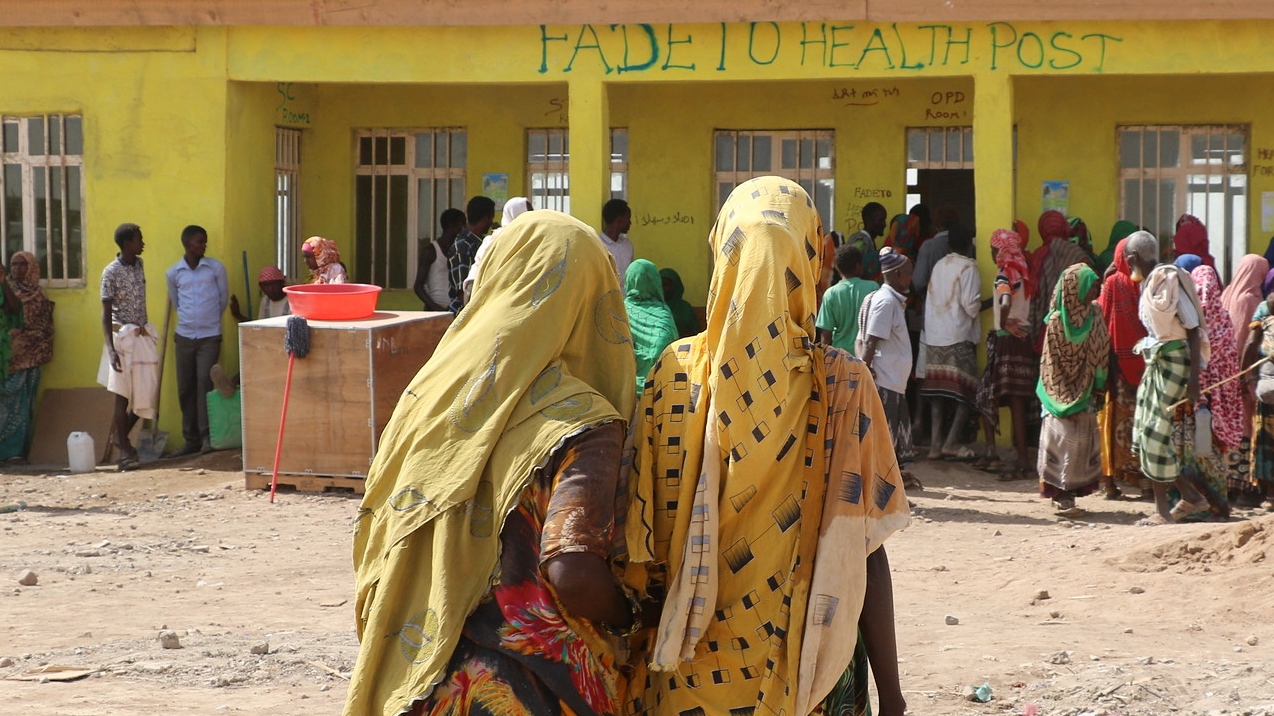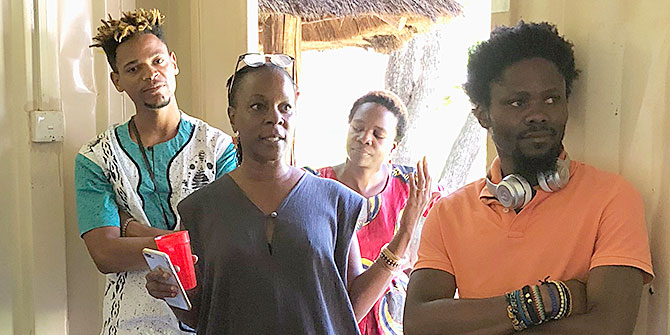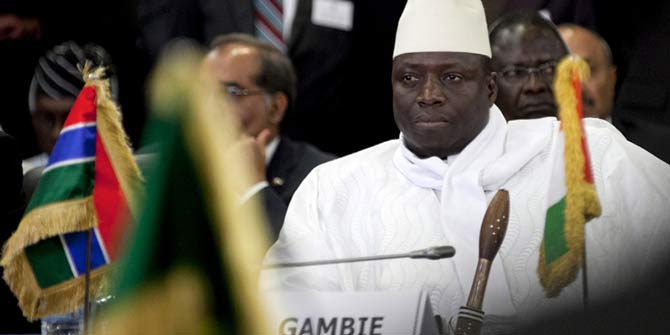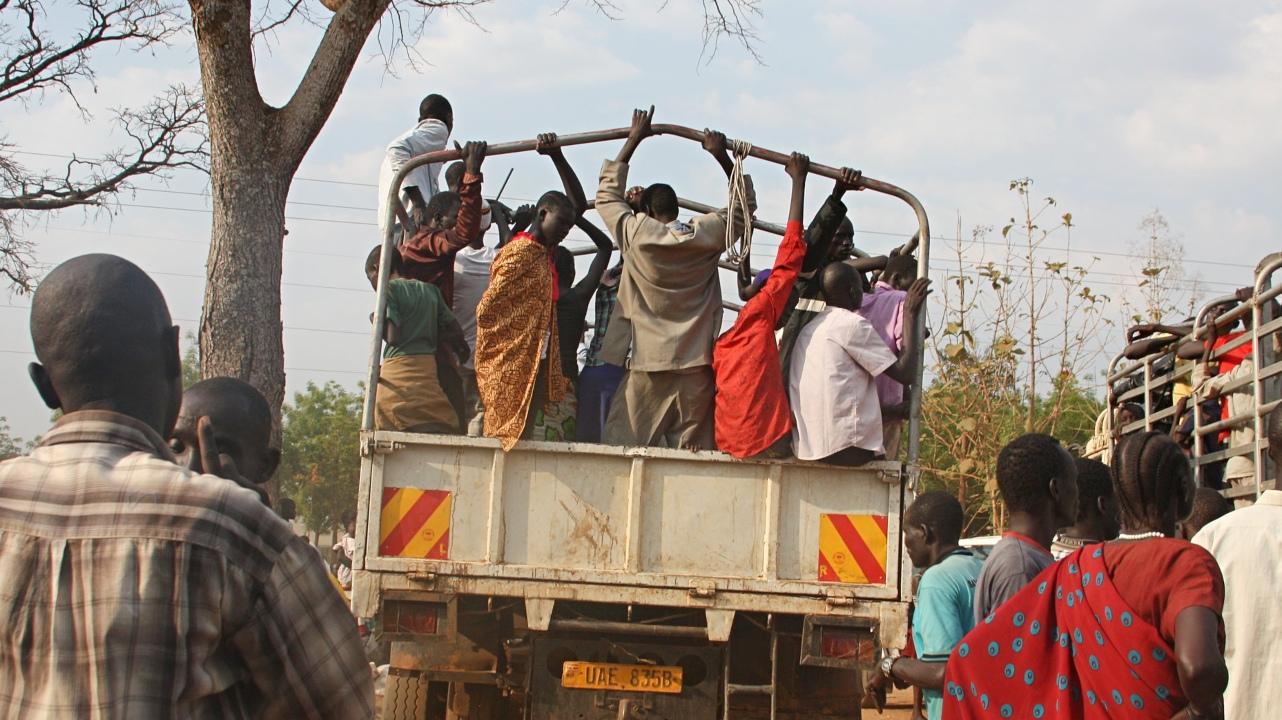As Syrians refugees fleeing turmoil reach Europe, Yohannes Woldemariam discusses the impact on the flow of Eritreans also seeking a safe haven.
This post is part of our series African Perspectives on Migration looking at the theme of irregular migration.
On 9/7/2015, Ron Bhola of the BBC World Service Radio emailed me and posed the following question: “We want to explore the impact on African migrants of the increase in Syrian refugees in Europe. Do you think there will be a hardening of the stance by Europe against those arriving at Lampedusa, etc? In other words, will pressure for places disadvantage African (undocumented) migrants and refugees, and why?”
The idea of comparing people in dire situations had not occurred to me before Mr Bhola posed the question. Frankly, I did not want to go there in the wake of the heartbreaking tragic image of Aylan Kurdi, the Syrian child washed up on a beach in Turkey. My instinct is to want safety for everyone who needs it. Unfortunately, the contrast between what I want and how things work forced me to give this question more reflection. More and more, the disparities with which refugees from different places are treated are becoming starker. I do not make this observation to suggest a cause and effect explanation for the different treatment of refugees but to underline the general perception that Syrians are refugees, whereas Eritreans are migrants. While I applaud refugee protection everywhere and certainly for Syrians, not all refugees arriving in Europe are treated equally even when the stories of vulnerabilities are similar.

Questions have been raised about the legitimacy of Eritrean asylum seekers as Europe tries to find a pretext to rid itself of Eritreans. An example of such an effort is the sponsorship of a fraudulent Danish study suggesting that the Eritrean government is in the process of actually reforming the indefinite military service, a finding subsequently refuted by a thorough UN report. The Danish researchers involved condemned the conclusions reached by Denmark’s immigration service describing Eritrea as safe for Eritrean deportees. Furthermore, UNHCR is concerned with the pace and scope of the restrictions the Danish Government is presently introducing in the areas of asylum, integration and family reunification, requiring refugee parents separate from their children for as long as three years, all designed to make Denmark unattractive as a destination for asylum seekers. Meanwhile, Norway is negotiating with the Eritrean government on ways to repatriate Eritrean refugees back to Eritrea.
In Europe, formerly marginalised leaders of right wing European parties such as Marine Le Pen, Viktor Orban and Geert Wilders, who calls the quest for asylum “an Islamic invasion,” are winning power or are becoming mainstream and serious contenders for power by playing on the anti-asylum rhetoric. In the United States Donald Trump is gaining in the polls by playing to the anti-immigrant hysteria.
We live in a world that is increasingly devoid of sentiments of compassion with the deprived and oppressed, as the treatment of Eritreans illustrates. As B.S. Chimni observes: “The ad nauseam talk of human rights does not today translate into entry rights for asylum seekers…the closing of legal channels of movement has meant a rapidly growing industry in the smuggling of human bodies.”
Europeans argue that refugees have the right to emigrate from their homeland but no right to choose where they want to immigrate to. It is argued that states must protect their workers from foreign influx. On the surface, this argument appears to have some merit, but even a quick research effort shows that 86% of the world’s refugees are actually hosted within the poorest neighbouring countries, usually in overcrowded, disease-ridden and unsafe camps. Europe’s population as a whole is about 500 million, the people who have come in 2015 is less than 0.1 percent of Europe’s population.
Europe is giving financial incentives to neighbouring countries like Turkey, Jordan and Lebanon to contain Syrians and Ethiopia for Eritreans — despite the fact that there are no safe havens for Eritreans in the immediate neighbourhood and nor even in second or third countries. The EU-Africa Valletta Summit is focusing on neighbouring countries to restrain refugee flow. Spearheaded by the Netherlands, it is investing on a Regional Development and Protection Programme (RDPP) for the Horn of Africa “which will assist countries hosting large numbers of refugees in addressing the protection and developmental needs of refugees and asylum seekers, needs of refugee hosting communities, and capacity building by national authorities… supported by EU funds and national contributions.”
This approach ignores regional politics and will not address refugee needs. For example, Ethiopia’s hospitality of Eritreans is politically motivated due to the “no war no peace” tactic that Ethiopia is waging against Eritrea with a view of weakening it by draining its human resources and economy. What mechanism is in place to ensure transparency that funding intended for refugees is spent on refugees? This question has to be asked because there is high level of corruption in Ethiopia and refugees are in no position to demand accountability. Sudan is dangerous, with kidnappings and the frequent refoulement of Eritreans back to Eritrea but serves as a conduit for the dangerous journey through the Sahara and into Libya. Djibouti is out of the question since it views Eritreans as a security risk and simply detains them. Egypt is unsafe and the scene of horrific kidnappings by Bedouins in Sinai. Eritreans and Sudanese are simply not welcome in Israel. Across the Red Sea, Eritreans trapped in the Yemeni civil war are most desperate with nowhere to escape to.
ISIS is making headway and the rival militias in the country are too divided to stop ISIS.
Gaddafi used asylum seekers as pawns in his relationship with Europe. Libya was rewarded with favourable trade terms and political deals: oil deals, and the UK’s softening of stance towards Libya on the Pan Am air tragedy in exchange for containing African refugees in detention centres. Abuses against Africans in Libya escalated during the civil war in 2011 from both sides, but particularly from anti-Gadhafi forces who cited the use by Gadhafi of some sub-Saharan Africans as mercenaries. After the resistance against Gadhafi gained momentum, refugees were literally pushed to the sea in decrepit boats raising the number of those who perished in the Mediterranean dramatically.
In the post Gadhafi era, it is an open season against Eritreans, Ethiopians Somalis, Sudanese and other countries from sub-Saharan Africa who flee persecution and try to use Libya as transit to Europe. African refugees in Libya are victims of predatory and corrupt militias, factions detain many migrants and refugees and sometimes collude with smugglers. The central Mediterranean route that Eritreans and sub-Saharan Africans take to reach southern Italy and Malta is more lethal and dangerous than the eastern Mediterranean route which Syrians used to take.
Those who wait in camps of the neighbouring countries do not have security or access to adequate medical treatment and are often victims of rape and various kinds of indignities. The stipulation that the persecuted apply for asylum in the first country of arrival is therefore not designed to protect human beings; rather, it is designed to protect states.
As part of EU effort to stem the refugee flow, the Eritrean government has been rewarded with 200 million euros, in the misguided premise that Syrians flee because of war but Eritreans are primarily fleeing for economic reasons and lack of jobs. Furthermore, the EU is launching a two billion dollar plan for Africa in an effort to curb migration. Enabling a repressive regime or regimes is not the answer. Glenys Kinnock, a member of the House of Lords who knows Eritrea well, warns against this approach and urges focus on the human rights of Eritreans. Eritreans have strong personal, social and communal ties to Eritrea. As meticulously documented by the UN study, it is the indefinite military service, arbitrary arrests, disappearances and unprecedented reign of terror which is primarily forcing the exodus.
To discourage crossing the Mediterranean, European countries replaced the stronger Italian rescue operation, the Nora Nostrum, with Triton. The Triton was expected to complement the Nora Nostrum; instead it replaced it with no clear mission and with a stated function of “border management” within 30 nautical miles from the European border. The worry was that the Nora Nostrum was a “pull factor” for refugees from Africa. In the latest Franco-German proposal, “Frontex, whose role is largely to coordinate national border agencies, [is] to be complemented further by a more ambitious European external border and coast guard system.” It is meant to save borderless Europe, Schengen, by strengthening the external borders of Europe, even against the will of European countries not able to protect their own borders. It is a logical extension of the “fortress Europe” mentality.
Attitudes are only hardening. As the razor wire fences are erected and the demonisation of refugees as swarms, infiltrators, criminals, vermin, terrorists and threats to security, welfare fleecing parasites gets heated, the desperation only grows. The barriers only serve to increase the death toll but never stop refugees from trying to get around these obstacles. Human beings do what they need to do to try to survive. However, in comparative terms, I would be remiss not to acknowledge that Angela Merkel’s Germany and Sweden are taking their obligation to the refugee convention seriously, while Britain and France have shirked their responsibility.
The United States is increasingly a stingy and heartless bystander. Both the United States and Britain are the leading merchants of weapons as well as spearheading military interventions but hesitant to deal with the clean-up of the mess created by the current refugee exodus. In contrast, European citizen humanitarianism, the ever exemplary NGO MSF and private initiatives like MOAS have helped save lives. Some ordinary fishermen and humanitarians have responded while there were incidents where ships left refugees to die to avoid any responsibility. Survivors of the worst shipwreck in recent European history, in which 366 people died October 3 2013 off the Italian island of Lampedusa reported that boats nearby did not help.
A Europe-wide agreement could define an asylum seeker, and standardise legal rights and standards for reception and treatment but the prospects are likely to be more fences and restrictions as governments face more challenges from right wing political parties. For example, Sweden’s hospitality may be wearing thin as it is requiring ID cards from refugees coming through Denmark undermining Schengen and some are comparing this to the Berlin Wall or the Iron Curtain. Hours later Denmark stepped up border control with Germany suggesting a snowballing effect of the Swedish action. In what is dubbed as a xenophobic move, Denmark’s government has secured cross-party support for a contentious law to confiscate jewelry and cash from asylum seekers. An alleged sexual harassment and groping on German women by a group of North African youth in Cologne is being exploited by right wing parties throughout Europe to further demonise all refugees as sexual predators and is threatening the collapse of the political will to protect refugees. The issue is being framed in terms of culture and something innate to Islam fanning more anti-refugee sentiment.
Eritreans will likely remain largely in detention camps in neighbouring countries or continue to be victims of kidnappings, traffickers, ISIS beheadings or drowning in the high seas. The need for massive resettlement is great, but the current rate is numerically too insignificant, and what little exists has been slowed due to the almost sole focus on Syrian refugees. The straightforward path is to expand legal channels of entering the EU or other affluent countries for protection before refugees fall victim to human predators and make the treacherous journeys through the Sahara and the high seas. The 28 EU member states are signatories to the 1951 refugee convention, yet procedures for processing applications differ by country. There is consensus that Eritreans merit consideration for asylum and resettlement. So, why allow Eritreans to risk their lives for the opportunity of applying for asylum that most countries in the world think they already deserve?
From an economic perspective, the fear that refugees are a drain on the system is grossly misplaced. The millions of refugees who are success stories against all odds, in many parts of the world, refute this easily. Many studies show that refugees enrich their host countries.
At a deeper level, resolving the impasse between Eritrea and Ethiopia by implementing the verdict of the International Court of Justice is a necessity to help stem refugee flow from Eritrea. Enabling the oppressive Eritrean government with financial aid and the militarisation of Ethiopia and the region only makes a bad situation worse. A policy emphasising human security based on our shared humanity in its many dimensions is the key to a better world.
Dr Yohannes Woldemariam teaches at the University of Colorado at Denver.
Read more articles from our series, African Perspectives on Migration
The views expressed in this post are those of the authors and in no way reflect those of the Africa at LSE blog or the London School of Economics and Political Science.





